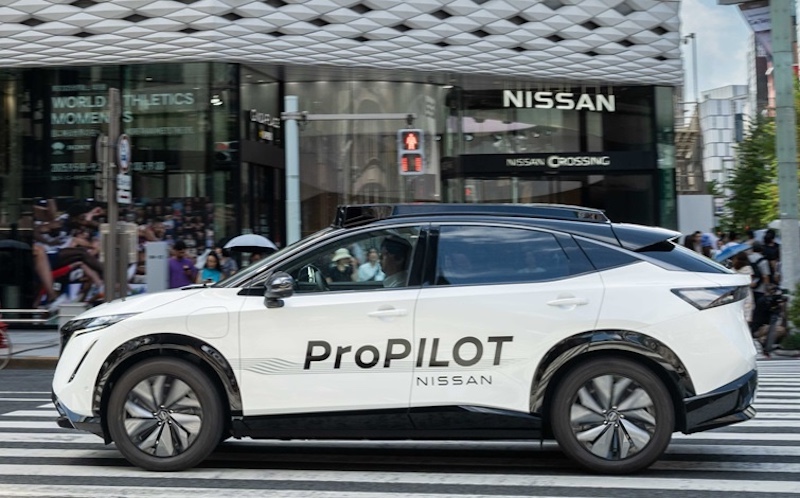Nissan has begun testing its next-generation ProPILOT driver assistance system in Japan, showcasing the technology with a fleet of all-electric Ariya prototypes on the streets of central Tokyo.
The system, scheduled to debut on select mass-production models in Japan from fiscal year 2027, combines advanced AI software with new sensor hardware to tackle complex urban driving.
The technology integrates Wayve’s “AI Driver” software with Nissan’s “Ground Truth Perception” system, which uses a roof-mounted next-generation LiDAR sensor alongside 11 cameras and five radar units.
Together, they allow the vehicle to interpret its surroundings, anticipate potential hazards, and respond quickly to sudden changes in conditions.
Wayve’s embodied AI processes real-world driving scenes in a way that Nissan says mimics human cognition, making decisions based on how traffic situations evolve rather than reacting to single objects in isolation. The aim is to deliver smoother, safer performance in crowded city environments.
Eiichi Akashi, chief technology officer of Nissan, says: “Our current ProPILOT 2.0 system has been well received, but Nissan’s next-generation ProPILOT technology will bring even more innovative features and deliver the feeling that a skilled human driver is behind the wheel.
“It will adapt to more complex traffic conditions and truly provide greater confidence and peace of mind, enhancing safety not only for the driver, but for everyone using the road.”
Nissan has steadily expanded its ProPILOT range from single-lane highway assistance to multi-lane support. The upcoming version, classed as SAE Level 2, requires drivers to remain in control but promises significantly improved support in urban conditions.
The initiative forms part of Nissan’s broader strategy to advance safety, accessibility, and competitiveness in future mobility.

